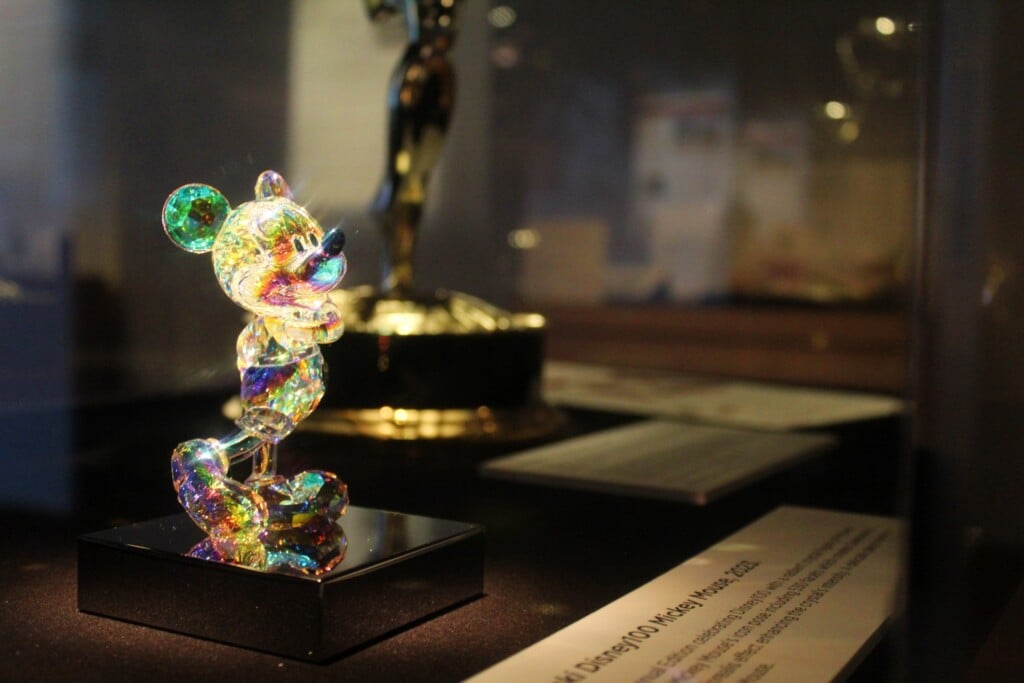An Outrageous Success
A few words from the Most Bitter Old Man in Kansas City, a corduroyed schlump blustering on and on just two seats away from me all through the Lyric Opera’s remarkable production of Hamlet: “Goddamned ridiculous.”
And: “This is a travesty.”
And: “This makes Guignol look like genius.”
As Ophelia lamented gorgeously, a glittering soprano mourning in a dreamscape snowstorm, and then stabbed herself with a sliver of ice, he exclaimed: “It’s frozen. How in hell is she going to drown herself?”
And this, after our refreshingly virile Hamlet had wrestled a gun from Laertes: “My students will see this. They’ll probably like it.”
To which his wife hissed, “Why wouldn’t they? They know nothing.”
This last one got to me. Surely young people know something this couple didn’t. Like how to shut up at the theater? Or not to wear white tube socks with loafers and too-short cords?
So, having never attended an opera before this, I’m tempted to hedge, to apologize for knowing so much less than these people. Arts patrons, with their sharp palates and sharper tongues, actually scare newcomers away with pride in discernment, like that of wine snobs or the guys who hang out in comic-book stores.
Screw them. I’ll just buck up and come out with it: Ambroise Thomas’ Hamlet pretty fairly kicked my ass. It’s powerfully sung, daringly staged, brilliantly lighted and passionately acted. Director Thaddeus Strassberger’s swooning yet hard-edged production moves swiftly and pulses with ideas, some grand and some endearingly goofy. He sets it in a 20th-century Denmark still reeling from a revolution. He opens with an industrial tableau worthy of the IWW. Then he gives us one of those opera mobs of urchins and soldiers. (This one uses ropes and joy to pull down a statue of the old regime. It’s reminiscent of the cheerful early days of the Iraq war, back when Baghdad was safe enough to stage a photo-op. (This brings up questions the show never answers: was Hamlet’s dad a good or a bad king? Are the people better off with Claudius?)
Then, a flourish from the orchestra heralds the new king. The audience is asked to stand, and a horde of Danes gushes down the aisles, waving signs and banners. They cluster before the stage and belt out a rousing tribute to new King Claudius; colored fliers explode from the balconies, papering the audience.
Most Bitter Old Man: “Outrageous.”
It was — especially considering that principle compelled half the audience to remain in their seats, preventing them from seeing the stage. From there, outrage follows outrage: Hamlet, brooding handsomely, feels up his mother, sneers like Elvis and joins a drunken kick line with clowns in dog masks. A drowning Ophelia sings goodbye from high above the stage, great shards of ice suspended around her, her dress a flower from which she blossoms. Then there’s the set: an industrial wasteland, all concrete and corrugated metal. It’s a chilly marvel that aspires to the working man’s grime of the old Soviet Bloc but doesn’t wind up looking like Madonna’s video for “Express Yourself.” As the cast stormed around it, I hoped they had all had tetanus shots.
I thrilled to all this craziness and to the libretto’s wild take on the Hamlet story and to the parade of marvels that is Mary Traylor’s costumes — but not as much as I did to the performances. Franco Pomponi’s Hamlet is stylish but masculine, even dangerous. He sings with equal parts heart and muscle, plumbing his baritone depths. He’s almost as much an actor as he is a singer. During his centerpiece confrontation with his mother on the night I watched the opera, his descent into near-matricidal barbarism elicited gasps from some audience members.
Jane Dutton is excellent as Gertude, who is blessed with the show’s most wrenching music. As Ophelia, Lauren Skuce unpeels an impressive series of silvery glissandos. The long strings of notes that she pulls up and out of herself seem solid and jewel-like enough to wear as necklaces. She does suffer one silly moment: After stabbing herself, she seems to gift wrap her dying body in the red streamer meant to be blood.
Strassberger’s Hamlet is a feast of music, pageantry and drama. I loved it enough that I’m tempted to make opera a habit. Maybe decades from now, I’ll know why I’m not supposed to like it.
Next time, just in case, I’ll take a pair of black socks.




